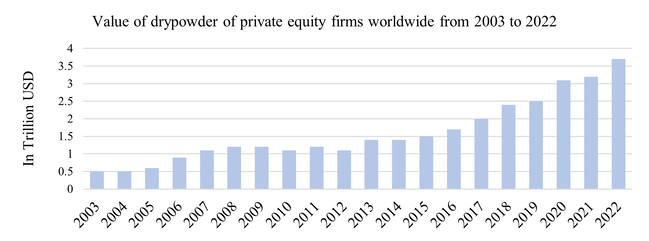
€10.2bn in 2010, €3bn in 2013 and €8.5bn in 2014: three times since the great financial crisis, Deutsche Bank has turned to its shareholders for cash.
Since becoming CEO in 2015, John Cryan has had no plans to ask shareholders for more.
Apparently, plans change.
On March 5th Mr. Cryan announced an €8.5 billion capital raise, which will take place through a share sale. The capital raise is intended to consolidate the bank’s status as "leading European bank with a global reach supported by its strong home base in Germany.”
Also, Deutsche Bank will restructure its existing Corporate Finance, Transaction Banking and Global Markets businesses into one single division, which will be called Corporate & Investment Bank. Deutsche Bank also said it plans to put its German retail-banking unit, Postbank, back into its operations: a reversal of the costly plan announced in 2015. The semi-independent German retail and commercial bank, will no longer be sold, but will be merged into Deutsche Bank to create the leading local bank in Germany.
Shares in Deutsche Bank fell 6% on the news on Monday the 6th.
Given this big price fall we would expect that existing shareholders are getting somehow damaged. However, this is not the case. It may sound counterintuitive but, from a certain perspective, they have made a gain.
Indeed, many see all this as good news. Firstly, when an at-risk too-big-to-fail bank raises capital from investors, it’s a great thing for affected taxpayers. Moreover, the timing of the share sale takes advantage of the recent rise in the share price, which has almost doubled from multi-year lows near €10 in September.
Secondly, Deutsche Bank is trying to eliminate uncertainty about its capital strength, and this will cut its cost of debt financing (the interest cost). It should also increase the valuation that investors will place on the stock, since it’s now a lower risk business.
Mr Cryan is now confident he can cut billions of extra costs (people, redundant technology and branches), and keeping Postbank also makes the future Deutsche Bank a more balanced business overall.
Nevertheless, the crucial question is whether this is going to be enough. The German bank is still lagging its rivals. Even though DB still claims “global corporate-and investment-banking ambitions”, sustaining the domestic roots looks sensible: America’s big banks show that domestic strength generates strength abroad.
But there is another lesson. Like many European banks, Deutsche has taken too long to choose its own path. Meanwhile, the Americans have marched into the distance.
Alberto Zara
Apparently, plans change.
On March 5th Mr. Cryan announced an €8.5 billion capital raise, which will take place through a share sale. The capital raise is intended to consolidate the bank’s status as "leading European bank with a global reach supported by its strong home base in Germany.”
Also, Deutsche Bank will restructure its existing Corporate Finance, Transaction Banking and Global Markets businesses into one single division, which will be called Corporate & Investment Bank. Deutsche Bank also said it plans to put its German retail-banking unit, Postbank, back into its operations: a reversal of the costly plan announced in 2015. The semi-independent German retail and commercial bank, will no longer be sold, but will be merged into Deutsche Bank to create the leading local bank in Germany.
Shares in Deutsche Bank fell 6% on the news on Monday the 6th.
Given this big price fall we would expect that existing shareholders are getting somehow damaged. However, this is not the case. It may sound counterintuitive but, from a certain perspective, they have made a gain.
Indeed, many see all this as good news. Firstly, when an at-risk too-big-to-fail bank raises capital from investors, it’s a great thing for affected taxpayers. Moreover, the timing of the share sale takes advantage of the recent rise in the share price, which has almost doubled from multi-year lows near €10 in September.
Secondly, Deutsche Bank is trying to eliminate uncertainty about its capital strength, and this will cut its cost of debt financing (the interest cost). It should also increase the valuation that investors will place on the stock, since it’s now a lower risk business.
Mr Cryan is now confident he can cut billions of extra costs (people, redundant technology and branches), and keeping Postbank also makes the future Deutsche Bank a more balanced business overall.
Nevertheless, the crucial question is whether this is going to be enough. The German bank is still lagging its rivals. Even though DB still claims “global corporate-and investment-banking ambitions”, sustaining the domestic roots looks sensible: America’s big banks show that domestic strength generates strength abroad.
But there is another lesson. Like many European banks, Deutsche has taken too long to choose its own path. Meanwhile, the Americans have marched into the distance.
Alberto Zara